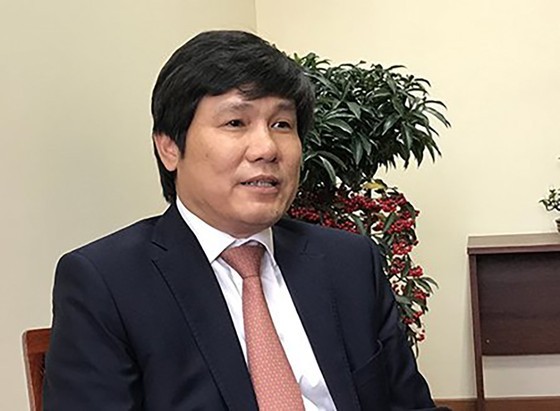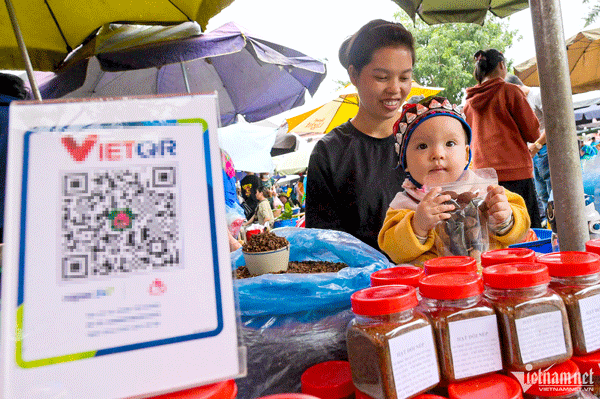 |
Mr. Dinh Viet Thang, Director of the Civil Aviation Authority of Vietnam (CAAV) |
According to Phu Quoc International Airport, there are 20-25 flights to the island every day, including 3-4 international flights, which is only 50 percent compared to the same period last year. Mr. Dinh Viet Thang explained that the substantial decline in the number of flights to Phu Quoc Island is mainly attributed to a decrease in domestic tourists visiting the island in 2023, as international tourism has experienced a robust recovery and growth. Additionally, the domestic economic situation has fallen short of the anticipated and targeted growth, prompting people to contemplate reducing expenses for travel and leisure activities. With the reduced demand for Phu Quoc, airlines have had to adapt their operational plans to meet and ensure the efficiency of their fleet. As of the end of September, the total number of passengers through Phu Quoc International Airport was approximately 3.4 million, marking a 25 percent decrease compared to the same period in 2022.
The number of flights has decreased, while ticket prices to Phu Quoc have sharply risen. For the upcoming Lunar New Year, round-trip ticket prices for the Hanoi - Phu Quoc route are currently in the range of VND6-9 million. According to Mr. Dinh Viet Thang, passenger service prices on domestic flights are adjusted following Circular No.17/2019/TT-BGTVT issued by the Ministry of Transport. The Hanoi - Phu Quoc route, being the longest in Vietnam's domestic flight network and incurring the highest costs, has the highest price range among all domestic routes.
Other domestic flights have also seen high fares over the past time. Especially, airfares on some routes for the upcoming Lunar New Year are extremely high. Mr. Dinh Viet Thang explained that airfare is determined through a flexible pricing mechanism that considers various factors such as market conditions, ticket conditions, and the timing of ticket issuance. For the domestic market, Vietnamese airlines adhere to a set transport price framework, ensuring that ticket sales do not exceed the prescribed ceiling price. However, airfare is influenced by the principles of supply and demand. During peak periods, the heightened demand for travel tends to concentrate on specific days and time frames, resulting in increased prices. Additionally, due to the unique operational nature of imbalances during peak periods, airlines have to increase ticket prices for the direction with high passenger demand to compensate for the costs incurred in the less crowded direction. The price structure for the 2024 Tet holidays is expected to remain comparable to that of 2023.
When comparing domestic airfares with those of regional airlines, the cost per kilometer in Vietnam remains relatively low. For instance, on the Hanoi - Ho Chi Minh City route, the highest regulated rate is approximately US$0.11 per km. In contrast, the Bangkok to Chiang Mai route with Thai Airways has the highest fare of $0.22 per km, and the Beijing to Shanghai route with Air China charges $0.27 per km.
According to the Bureau of Labor Statistics, global airfares are currently higher by 15-17 percent compared to 2022 due to increased input costs. Airlines are grappling with the cost of Jet A1 fuel, which was priced over $122 per barrel in October, up over 60 percent compared to 2019. Particularly, due to fluctuating exchange rates, with 70 percent of flight costs paid in foreign currency, Vietnamese airlines are still unable to make a profit. The current airfares are insufficient to cover the costs, making it challenging for airlines to reduce ticket prices.
To address the issue of domestic airfares exceeding the affordability of a majority of the population, Mr. Dinh Viet Thang revealed that the CAAV has instructed airlines to increase their capacity. During the peak period of the upcoming Lunar New Year in the Year of the Dragon, airlines are expected to provide 5.5 million seats on domestic routes, a 4 percent increase compared to the same period last year, and approximately 2.1 million seats on international routes, marking a 36.8 percent increase compared to the same period last year.
He said the CAAV has been actively supporting and encouraging airlines to boost their capacity by exploring short-term aircraft leases, extending daily operational hours, and increasing nighttime flight operations. The CAAV has also been urging airports to prepare resources to meet the demand for nighttime flights. Furthermore, the CAAV has reported to the Ministry of Transport to seek guidance on coordinating with railway and road transport enterprises to enhance transportation capacity, ensuring the people's travel needs are met during the Tet holidays.
























